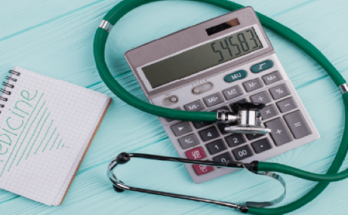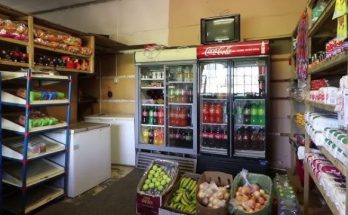As we enter the final quarter of 2025, it’s important to assess your financial position and make strategic decisions that benefit you now and in the new year. Small actions can make a big difference to your financial health in the months ahead, helping you build resilience and security in an uncertain environment.
“The key is to act before deadlines pass and opportunities disappear,” says Sarah Nicholson, customer experience and platform manager of JustMoney.co.za, a platform that helps South Africans make good money choices. “The actions and strategies you implement in the final quarter of 2025 should support both immediate financial health and sustainable wealth building.”
JustMoney offers these simple but impactful tips.
- Draw up a valid will. If you pass away without a will, it can create unnecessary costs and delays for your loved ones. You can draft a basic will affordably, using online platforms, templates, or professional services. If your estate is complex, seek advice from a lawyer, financial adviser, or bank.
- Review beneficiary nominations. Update beneficiaries of your retirement funds, life insurance, and investment accounts. Outdated nominations will cause significant delays and complications for your heirs.
- Start tax planning. Consider, for example, making a lump-sum deposit by 28 February 2026 if you haven’t maximised your retirement annuity contribution for this financial year. You can allocate up to 27.5% of your taxable income or remuneration, subject to an annual cap of R350,000.
- Donate to a registered non-profit organisation. You can claim a tax deduction by donating to a registered Public Benefit Organisation with Section 18A status. Provide your full name, ID or tax number, donation amount, and date. Retain the official 18A receipt and proof of payment.
- Create a festive season budget. Discovery Bank’s festive season “Spend Trend” report revealed a marked increase in several spending categories in December 2024, versus the rest of the year. For example, expenditure on outdoor activities was up by 62%, movies 52%, children’s toys 32%, and eating out and takeaways 26%.To prepare for increased spending, consider opening a savings account or using the old-fashioned envelope method to allocate cash to different categories.
- Plan for school fees. Many schools offer discounts for annual upfront payments, which could save you 5-10% compared to monthly instalments. If paying annually isn’t feasible, plan payments to spread the cost evenly throughout the year.
- Build an emergency fund. Aim to cover three to six months’ worth of expenses. Consider splitting your emergency reserves between a traditional savings account for immediate access and a 32-day notice account or fixed deposit for slightly higher returns on the portion you’re less likely to need urgently.
- Make the most of your 2025 medical scheme benefits. Limited scheme benefits, such as scans, operate on a calendar-year basis. Be sure to use any benefits as needed before the end of the year, as they won’t roll over to the following year.
- Review your medical aid plan options. The annual open period, usually from November to December, allows you to change options without waiting periods. Compare options carefully, as higher contributions don’t always provide better value.
- Get the best bond rate and assess rental fees. Consider refinancing your bond or adjusting your existing bond terms if you secured the bond when interest rates were higher. If you rent out property, assess property values and rental yields, and liaise with tenants about 2026 rental increases.
- Apply for municipal relief. Check if you qualify for any rebates or discounts, based on household income, age, or disability. Gather documents to support your application.
- Check investment performance. Review your investment strategy to ensure it’s still aligned with your goals, risk tolerance, and financial situation.
- Consider offshore investment. The rand’s volatility can create opportunities. JSE-listed exchange-traded funds that track international markets offer a cost-effective way to gain offshore exposure without the complexity of formal foreign exchange applications. Be sure to assess the risk before investing.
- Preserve your retirement fund. If you’ve changed jobs this year, resist the temptation to cash out your retirement savings. Rather, transfer to a preservation fund or your new employer’s fund to maintain the tax benefits and compound growth potential.
- Review debt. Start by listing all your debts, considering balances, interest rates, and minimum monthly payments. Review your income and essential expenses to check how much you can realistically allocate towards paying down debt. If you have concerns, consult a reputable debt management company that is registered with the National Credit Regulator.
- Check for insurance gaps. Review your life, disability, household, and vehicle cover. A rule of thumb for life cover is 10-15 times your annual salary, but consider your financial obligations. These could include bond repayments, children’s education, and family living expenses.
- Track utilities. Explore ways to reduce water and electricity consumption. Fix leaks and consider investing in energy-efficient appliances. If finances allow, set aside a small monthly amount to cover higher seasonal bills.
- Boost side-hustle income. South Africa’s gig economy continues to grow, offering opportunities for additional income streams. Consider how to generate extra income, but keep in mind that earnings, whether in cash or kind, must be declared as taxable income.
- Plan now for overseas travel. Popular foreign destinations are largely cashless, but some require forex. To arrange forex, book your flights ‒ you’ll need your ticket as proof of travel ‒ and compare rates at your bank and forex bureaus. Buy about 30-40% of your budgeted foreign currency two months before your trip, to lock in the exchange rate. If the rand strengthens, top up with another 30-40%. One week before travel, buy the final 20-30%.
- Plan travel insurance. Check what your credit card travel insurance covers. Buy additional cover if needed, especially given the higher healthcare costs in many destinations. Check whether your medical aid covers you for international travel, and ensure you comply with requirements, such as advising of travel dates.
“By being proactive now, you set yourself up for a smoother start to the new year, with a clearer sense of control over your money and a stronger foundation for future goals,” concludes Nicholson. “Financial planning isn’t only about handling today’s expenses, it’s about creating stability and opportunity for the year ahead.”




